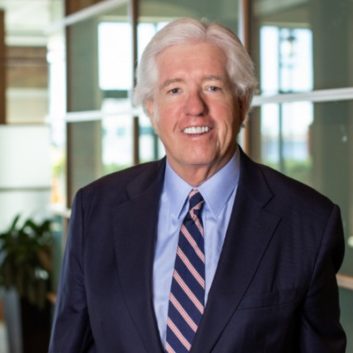
The author is the former chairman and chief executive of Greater Media.
The COVID-19 crisis has been devastating across multiple sectors of the U.S. economy — and the renewed threat posed by resurging rates of infection is troubling.
In the broadcast industry, where I’ve spent most of my professional career, big challenges are hitting radio markets and station groups all over the U.S., including in San Diego, America’s 16th largest radio market.
Total radio listenership in San Diego has been down by 40 percent, with commercial revenue plummeting and operating budgets slashed as a result. You’ve seen significant layoffs at radio stations and the disappearance of beloved on-air personalities with decades of listener engagement in San Diego.
This unprecedented series of events will test broadcast company leadership like nothing we have seen — in San Diego and nationwide. The broadcast industry is pivoting dramatically before our very eyes. So too are the restaurant and hospitality business, transportation and common carrier travel, retail, personal services and many other fields.
Stay close with your people
The transformative effect of COVID-19 on our economy won’t just be felt for a set period of time. It will change some businesses forever, inspire or motivate creative ideas for managing this new reality, and sadly inflict damage enough to end many enterprises completely.
Whether it’s broadcasting, manufacturing, service industries or retail, you cannot manage what you don’t understand. And the only way to genuinely understand how transformative events impact your team is stay as close to them and communicate with them as much as possible. That means reaching out and connecting daily with the men and women that make your company work. It means being present for them and being counted alongside them.
I’ve seen a number of incredibly valuable information tools emerge in the roughly five-month period during which COVID-19 has altered our social, behavioral and economic landscape.
This April piece from Harvard Business Review by three ghSMART management consultants demonstrates that the most important goal of managing through a crisis event is taking good care of your team. Significantly, these experts suggest that acting definitively with speed over precision is often necessary to keep pace with fast-evolving and impactful events.
A similarly timed report from MIT’s Sloan Management Review notes the importance of team leaders or middle-tier managers as organizational figures that “set the tone and serve as the voice of reality.”
What these company figures say and share and how they lead can be more influential than the actual CEO or other top-tier leadership. “Support the organizational stance; if you bash the organization or its leadership, employees will lose trust,” writes consultant Amy Leschke-Kahle, the piece’s author. “They need to be able to rely on their immediate leader for honesty and stability.”
And finally, consultant Jack McGuiness writes in Chief Executive magazine that practicing “positive accountability” is the most effective method for supporting teams working through unusual or uncomfortable circumstances. Bottom line: if you need to get someone back on track, begin the conversation with the things they are doing well.
Company or workplace leaders should be staying connected both literally and emotionally with their employees. Hold weekly town halls via Zoom or other remote technology. Have informal meetups online and make unexpected calls to staff just to check in and see how they are doing.
And always, always, be honest and forthright about what is happening with the economy and your company. In good times and in bad. When the news is encouraging or when the news is devastating.
There will inevitably be tough decisions made during such a 100-year economic weather event. But always remember to treat your people as you would wish to be treated. Information is an asset, not a liability. Share it properly and your team will hang in there with you.
Peter H. Smyth is now a senior consultant to American Media and is a member of the Massachusetts Broadcasters Hall of Fame.







